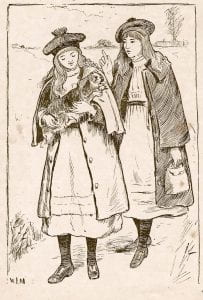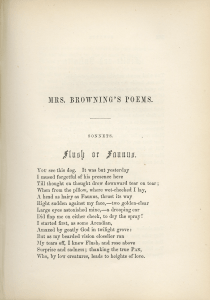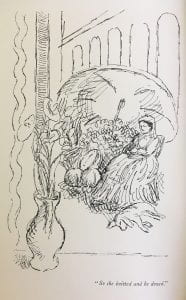by Rachel Jacob, Armstrong Browning Library Graduate Research Assistant
The Baylor Book Society, established in 1970 as the Moody Memorial Library Book Fund, provides a way for donors to strengthen the book purchases of Baylor Libraries and create a lasting tribute. The contribution of an individual or group creates a legacy as the Libraries place a special plate with the name of the donor and the honoree in the first volume which the funds help acquire.
The Armstrong Browning Library purchased the following books through donations to the Baylor Book Society.
In memory of Dr. Margaret Jones Chanin by Gretchen Peterson Thomas
Anna Barton’s Nineteenth-Century Poetry and Liberal Thought: Forms of Freedom. [ABL Non-Rare 821.809 B293n 2017]
In memory of Celia Dilworth Morgan, Class of 1938, by Nancy and Phil Wedemeyer
Catherine Phillips and R.K.R. Thornton’s The Collected Works of Gerard Manley Hopkins, 1852-1881. Volumes I & II. [ABL Non-Rare 821.8 H794c 2006]
In honor of the Anna and Bob Wright Family by Mike and Kay Brown
Stephen Cheeke’s Transfiguration: The Religion of Art in Nineteenth-Century Literature Before Aestheticism. [ABL Non-Rare 820.9382 C515t 2016]
In honor of Connie Schuetz Wright by Melvin H. Schuetz
Caley Ehnes’ Victorian Poetry and the Poetics of the Literary Periodical. [ABL Non-Rare 821.809 E33v 2019]
In memory of Carroll Hague
Philip Hoare’s RISINGTIDEFALLINGSTAR. [ABL Non-Rare 820.9358 R313b 2017]

In honor of Lynn Schuetz by Melvin H. Schuetz
Sarina Moore, Emily Morris, and Lesa Scholl’s Place and Progress in the Works of Elizabeth Gaskell. [ABL Non-Rare 823.8 S368p 2015]
In memory of Louise H. Schuetz by Melvin H. Schuetz
Colin Carman’s The Radical Ecology of the Shelleys. [ABL Non-Rare 821.7 C287r 2019]
In honor of Shirley Schuetz by Melvin H. Schuetz
Emma Mason’s Christina Rossetti: Poetry, Ecology, Faith. [ABL Non-Rare 821.8 M398c 2018]
In memory of Dr. Cornelia Marschall Smith by Martha and Roger Brooks
Patricia Murphy’s Reconceiving Nature: Ecofeminism in Late Victorian Women’s Poetry. [ABL Non-Rare 821.8099287 M978r 2019]
In memory of Dr. Avery Thomas Sharp by Pattie and Steve Orr
Laurence W. Mazzeno and Ronald D. Morrison’s Animals in Victorian Literature and Culture: Contexts for Criticism. [ABL Non-Rare 820.9362 M477a 2017]
In memory of Jesmarie Harvey Hurst by Libraries Board of Advisors and Library Staff
Sarah Parker’s Michael Field: Decadent Moderns. [ABL Non-Rare 821.8 P243m 2019]
In honor of William F. Schuetz, Jr by Melvin H. Schuetz
Alexander Regier’s Exorbitant Enlightenment: Blake, Hamann, and Anglo-German Constellations. [ABL Non-Rare 820.9005 R335e 2018]

In loving memory of my parents Mr. and Mrs. Ben Skrabanek by Rita S. Patteson
Joshua King and Winter Jade Werner’s Constructing Nineteenth-Century Religion. [ABL Non-Rare 820.9382 K53c 2019]
In honor of Mary Barton Robinson, BA 1950, by Kathy Robinson Hillman
Linda K Hughes’ The Cambridge Companion to Victorian Women’s Poetry. [ABL Belew Scholars’ Room Reference 821.8099287 H893c 2019]
In honor of Frankie Carson by Melvin H. Schuetz
Karen Bourrier’s Victorian Bestseller: The Life of Dinah Craik. [ABL Non-Rare B C887b 2019]
In honor of Sue and Wilburn “Dub” Wright by George W. Monroe
Patricia Cove’s Italian Politics and Nineteenth-Century British Literature and Culture.[ABL Non-Rare 820.9 C873i 2019]
In honor of my Wife, Carol L. Schuetz, by Melvin H. Schuetz
Virginia Woolf’s Flush: A Biography, illustrated by Katyuli Lloyd. [ABL Non-Rare 823.91 W913flu 2018]

In memory of Dr. Margaret Jones Chanin by Gretchen Peterson Thomas
Laurence W. Mazzeno and Ronald D. Morrison’s Victorian Environmental Nightmares. [ABL Non-Rare 820.936 M477v 2019]
In memory of Carroll Hague
Laura Eastlake’s Ancient Rome and Victorian Masculinity. [ABL Non-Rare 820.9353 E13a 2019]
In honor of Connie Schuetz Wright by Melvin H. Schuetz
Jan Marsh’s Dante Gabriel Rossetti: Painter and Poet. [ABL Non-Rare B R8293ma 1999]
In memory of Rev. Al Novak, 1929, by Rynell and Joseph Novak
Christopher W. Corbin’s The Evangelical Party and Samuel Taylor Coleridge’s Return to the Church of England. [ABL Non-Rare 283.42 C791e 2019]
In honor of Frankie Carson by Melvin H. Schuetz
Kathleen Krull’s Writers and Their Pets, illustrated by Violet Lemay. [ABL Non-Rare 636.088 K94w 2019]

In loving memory of my parents Mr. and Mrs. Ben Skrabanek by Rita S. Patteson
Kirstie Blair’s Working Verse in Victorian Scotland: Poetry, Press, Community. [ABL Non-Rare 821.809 B635w 2019]
In memory of Celia Dilworth Morgan, Class of 1938, by Nancy and Phil Wedemeyer
Brenda Ayers’ Victorians and Their Animals: Beast on a Leash. [ABL Non-Rare 820.9362 A985v 2019]
By Charlotte and Robert Lloyd
John Simons’ Rossetti’s Wombat: Pre-Raphaelites and Australian Animal in Victorian London. [ABL Non-Rare 759.2 S611r 2008]
In memory of Hannah McKay Crofts by Frances McKay Andrews and Ellen Andrews Gage
Juliette Atkinson’s French Novels and the Victorians. [ABL Non-Rare 843.809 A876f 2017]
In memory of Celia Dilworth Morgan, Class of 1938, by Nancy and Phil Wedemeyer
Lesa Scholl’s Hunger, Poetry and the Oxford Movement: The Tractarian Social Vision. [ABL Non-Rare 821.809 S468h 2020]
In honor of Mary Barton Robinson, BA 1950, by Kathy Robinson Hillman
Jan Marsh’s Christina Rossetti: A Writer’s Life. [ABL Non-Rare B R829ma 1995]
In memory of Dr. Susan Burrow Colón by Ivy, Greg, and Luke Hamerly
Andrew O. Winckles and Angela Rehbein’s Women’s Literary Networks and Romanticism: A Tribe of Authoresses. [ABL Non-Rare 820.99287 W775w 2017]

In memory of Dorothy Cunningham Lamberth by many Tyler friends who love her
Lesa Scholl’s Hunger Movements in Early Victorian Literature: Want, Riots, Migration. [ABL Non-Rare 823.809353 S368h 2016]
In memory of Jesmarie Harvey Hurst by loving Tyler friends
Ayesha Mukherjee’s A Cultural History of Famine: Food Security and the Environment in India and Britain. [ABL Non-Rare 363.90954 M953c 2019]
In honor of Sue and Wilburn “Dub” Wright by George W. Monroe
Kevin A. Morrison’s Victorian Liberalism and Material Culture: Synergies of Thought and Place. [ABL Non-Rare 306.0941 M879v 2018]
In honor of Rebekah Novak Proctor by her parents Rynell and Joseph Novak
William Baker and Jeanette Roberts Shumaker’s Jewish Writing: A Reference and Critical Guide to Jewish Writing in the UK, Volume 1. [ABL Non-Rare 820.9 B167j 2019]
In honor of Joseph R. Novak, BU1951, by Dr. Rynell S. Novak
William Baker and Jeanette Roberts Shumaker’s Jewish Writing: A Reference and Critical Guide to Jewish Writing in the UK, Volume 2. [ABL Non-Rare 820.9 B167j 2019]
By Martha Withers Brooks
Sheshalatha Reddy’s British Empire and the Literature of Rebellion: Revolting Bodies, Laboring Subjects. [ABL Non-Rare 820.9358 R313b 2017]

More information about the Baylor Book Society and other Baylor Library programs can be found at:
https://www.baylor.edu/mediacommunications/news.php?action=story&story=1671

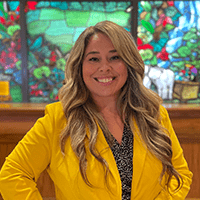 school from there, then made my way to the Texas Hill Country where I went to school at Texas State in San Marcos and received my Bachelor of Science in Family and Consumer Science, and a Minor in Mass Communications. After college, I entered the events/wedding industry where I worked for over a decade coordinating events and weddings. I also managed a floral company for weddings and specialty events.
school from there, then made my way to the Texas Hill Country where I went to school at Texas State in San Marcos and received my Bachelor of Science in Family and Consumer Science, and a Minor in Mass Communications. After college, I entered the events/wedding industry where I worked for over a decade coordinating events and weddings. I also managed a floral company for weddings and specialty events. Katherine, who is a current Baylor PhD student (in history). Previously, I worked as the theology editor for Christianity Today magazine until 2020, when I left full-time work there to pursue my own PhD in theology (at Trinity Evangelical Divinity School in Illinois).
Katherine, who is a current Baylor PhD student (in history). Previously, I worked as the theology editor for Christianity Today magazine until 2020, when I left full-time work there to pursue my own PhD in theology (at Trinity Evangelical Divinity School in Illinois).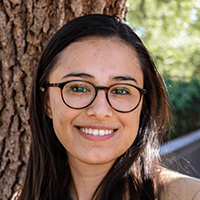 Spanish at Wheaton College, and then moved to Boston to attend Simmons University for my M.L.I.S. degree. I concentrated in cultural heritage studies and explored the many different historic landmarks, museums, and libraries of New England as a student. After my wedding last summer in Maine, I moved to Texas to join my husband, David Criscione, as he completes his PhD program here at Baylor.
Spanish at Wheaton College, and then moved to Boston to attend Simmons University for my M.L.I.S. degree. I concentrated in cultural heritage studies and explored the many different historic landmarks, museums, and libraries of New England as a student. After my wedding last summer in Maine, I moved to Texas to join my husband, David Criscione, as he completes his PhD program here at Baylor.